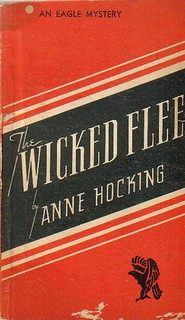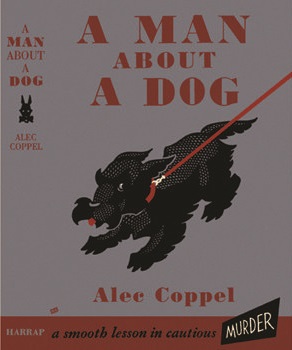
A Man About a Dog is a 1947 thriller novel by the British-Australian writer Alec Coppel. Driven to distraction by his wife's repeated affairs, her husband decides to kidnap her latest lover and commit the perfect murder, only to be thwarted by a dog.
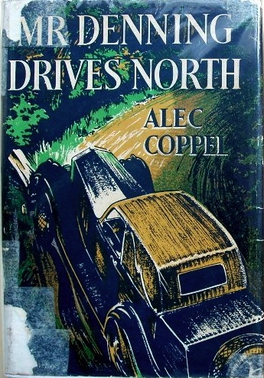
Mr. Denning Drives North is a 1950 thriller novel by the British-Australian writer Alec Coppel. When successful and happily married aircraft manufacturer Tom Denning attempts to commit suicide by crashing a plane, detectives uncover a murder in his past background that has driven him insane with guilt.

The House of Secrets is a 1926 mystery thriller novel by the British writer Sydney Horler. Horler was a prolific writer known for particularly for his series featuring Tiger Standish, but he also wrote many stand-alone novels. In 1927 he adapted the novel into a stage play of the same name.
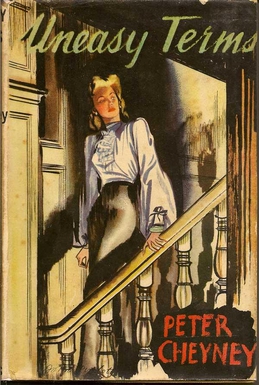
Uneasy Terms is a 1946 crime thriller novel by the British writer Peter Cheyney. It was the seventh and last in his series featuring the London-based private detective Slim Callaghan, a British version of the hardboiled heroes of American writing.

The Case Against Andrew Fane is a 1931 mystery detective novel by the British writer Anthony Gilbert, the pen name of British writer Lucy Beatrice Malleson. It was a stand-alone novel by the author who was at the best time known for her Golden Age detective Scott Egerton.

Still Waters is a 1949 detective novel by E.C.R. Lorac, the pen name of the British writer Edith Caroline Rivett. It is the thirty second in her long-running series featuring Chief Inspector MacDonald of Scotland Yard, one of the more orthodox detectives of the Golden Age of Detective Fiction.

Death of an Author is a 1935 detective novel by E.C.R. Lorac, the pen name of the British writer Edith Caroline Rivett. It is a rare standalone book by Lorac, not featuring Chief Inspector MacDonald of Scotland Yard who appeared in a lengthy series of novels during the Golden Age of Detective Fiction. It was her final novel published by Sampson Low before she switched to the more prestigious Collins Crime Club with whom she remained for the rest of her career.
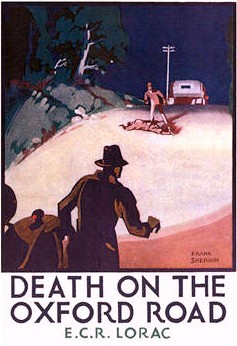
Death on the Oxford Road is a 1933 detective novel by E.C.R. Lorac, the pen name of the British writer Edith Caroline Rivett. It is the fifth book featuring Chief Inspector MacDonald of Scotland Yard who appeared in a lengthy series of novels during the Golden Age of Detective Fiction.
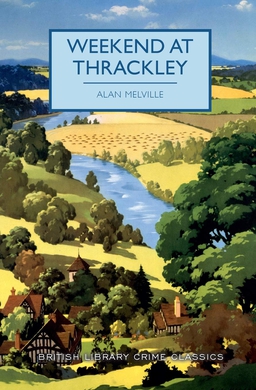
Weekend at Thrackley is a 1934 detective novel by the British writer Alan Melville. A whodunit with comic overtones, it takes the form of a country house mystery, a genre at its height during the decade. His debut novel, it was a commercial success and led to him giving up his job in the timber trade to become a full-time writer. It was reissued in 2018 by the British Library Publishing as part of a group of crime novels from the Golden Age of Detective Fiction.

The Case of Colonel Marchand is a 1933 detective novel by E.C.R. Lorac, the pen name of the British writer Edith Caroline Rivett. It is the fourth book featuring Chief Inspector MacDonald of Scotland Yard who appeared in a lengthy series of novels during the Golden Age of Detective Fiction.

A Village Afraid is a 1950 detective novel by the British writer Cecil Street, writing under the pen name of Miles Burton. It was part of a lengthy series of books featuring the detective Desmond Merrion and Inspector Arnold of Scotland Yard.

The Murders in Praed Street is a 1928 detective novel by John Rhode, the pen name of the British writer Cecil Street. It features the fourth appearance of the armchair detective Lancelot Priestley, who figured in a long-running series of novels during the Golden Age of Detective Fiction.

Death on the Riviera is a 1952 detective novel by the British writer John Bude. It was part of a series featuring Superintendent Meredith of Scotland Yard. While Bude set many of his earlier novels in regional England, after the Second World War they made increasing use of more exotic, Continental settings. In 2016 it was reissued by the British Library Publishing as part of a group of republished crime novels from the Golden Age of Detective Fiction.
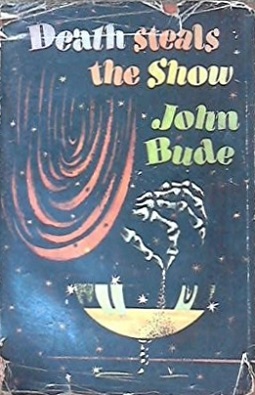
Death Steals the Show is a 1950 detective novel by the British writer John Bude. It is part of his series of novels featuring Superintendent Meredith.
Salute the Toff is a 1941 crime thriller novel by the British writer John Creasey. It is the sixth in his long-running featuring the gentleman amateur detective The Toff.

Rich Is the Treasure is a 1952 crime novel by the British writer Maurice Procter. It is the second in a trilogy featuring Scotland Yard Detective Superintendent Philip Hunter, which he wrote alongside the better known series featuring Chief Inspector Harry Martineau. The plot revolves around a gang creating counterfeit diamonds.
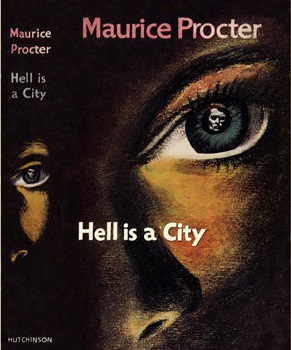
Hell Is a City is a 1954 crime novel by the British writer Maurice Procter. It was the first in a series featuring Chief Inspector Harry Martineau, set in the Northern industrial city of Granchester. It takes the form of a police procedural, and marked a transition away from the traditional Golden Age detective novel. Published by Hutchinson, it was released in the United States by Harper the same year under the alternative title Somewhere in This City.

The Floating Dutchman is a 1950 crime novel by the British writer Nicolas Bentley.

Silence Observed is a 1961 detective novel by the British writer Michael Innes. It is the seventeenth entry in his series featuring Sir John Appleby, now an Assistant Commissioner at Scotland Yard. It received a positive review from Anthony Lejeune in the Times Literary Supplement.

The House Opposite is a 1931 mystery crime novel by the British writer Joseph Jefferson Farjeon. It was the second in his series of novels featuring Detective Ben, following the 1926 novel Number 17. It was published by the Collins Crime Club which had been established the previous year.
